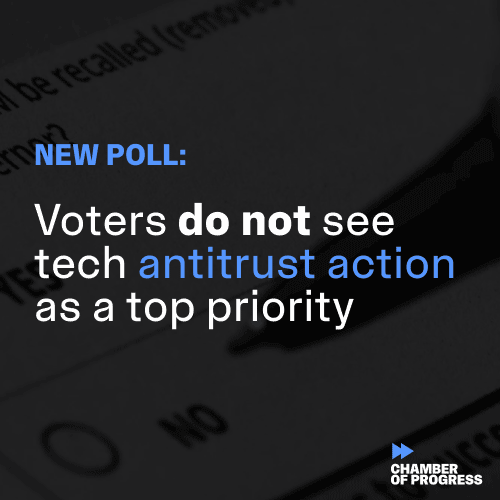It’s no exaggeration to say that the smartphone changed the experience of… well, being a person, whether in the form of omnipresent messaging technology or the ability to travel without a road atlas. Tech companies are hoping to transform our lives all over again, now through virtual reality technology — which means another hardware arms race. Meta continues to devise new headsets as Apple plans to launch its own competing glasses. Microsoft is selling its HoloLens headset as an “industrial metaverse” device, and smaller companies like Qualcomm and Magic Leap are getting into the game. Yet the U.S. is still struggling to figure out how to handle the regulatory issues smartphones have created. Widespread geo-tracking, networks that function as walled gardens, and quasi-monopolistic app stores that charge high fees for access have all become major issues for companies like Meta and Apple as they’ve become mobile-first businesses. Meanwhile, users have to jump through hidden hoops to guard their location from advertisers. In the metaverse, where vast new swaths of personal data will be collected, it’s not at all clear how these problems won’t simply get worse — or what new ones might pop up to accompany them. So what did regulators miss as smartphones went from high-tech novelty to commonplace necessity? And how can they do better this time? President Bill Clinton argued in the 1990s that the government should take a light regulatory touch when it comes to new technologies, the better to avoid hampering innovation. VR is already past that phase according to Jeff Chester, executive director for the non-profit Center for Digital Democracy, who says “the bottom line is that the [tech companies’] business model is mature, and you need to regulate accordingly.” Even if elements of VR technology — fast, cheap efficient GPUs, low-latency, high bandwidth network connections, and the headsets themselves — are still evolving, Chester and other tech critics argue that problems with the companies’ ad-driven business models will persist into the headset era, along with the problems they create. “We haven't solved privacy, we haven't solved competition, we haven't solved the human rights issues, and somehow we expect that they're going to get better in the metaverse,” said Tom Wheeler , a former FCC chairman who is now a fellow at the Brookings Institution. At the dawn of the smartphone era, Washington was mostly concerned about the impacts that the technology had on the real, analog world — distracted driving, issues of mental health, even their effect on sleep patterns. By the time regulators started seriously looking at behind-the-scenes issues like privacy and monopoly, the technology was already entrenched. The big companies are anticipating more oversight this time, and trying to get ahead of it. In a lengthy essay published last week, Meta’s president of global affairs Nick Clegg promised “to ensure that industry standards or regulations are inclusive of the concerns of the civil rights and human rights communities.” But his essay offers little in the way of prescription aside from a vague exhortation to collaborate with regulators and even rival tech companies. Wheeler, the former FCC head, is skeptical. He warned of the potential for tech giants to vertically integrate their products even more than they already are, and of the “historic potential” for headset producers to control every step of the process, selling both hardware and software to users and even taking a cut from external developers who want to sell software on their app store, as Apple has done for years on its App Store. It might sound like the history of mobile technology has the potential to repeat itself — and then some — with the dawn of the headset era. But it’s not the 1990s anymore. Some watchdogs, like the CDD’s Chester, see reason to hope that the ship might be steered with the growing tech backlash on the Hill and tough-minded regulators like FTC chair Lina Khan now in positions of power. “These companies have the ability to manipulate people,” Chester said. He cited the proliferation of a technique called “neuromarketing,” where physiological and neurological signals are tracked to measure and predict consumer behavior. VR headsets are already tracking intimate biometrics like eye movement and heart rate. “Some of those things need to be either off the table or regulated,” Chester said. “You should not be testing people's unconscious to figure out how to get them to do what you want them to do.”
| 


